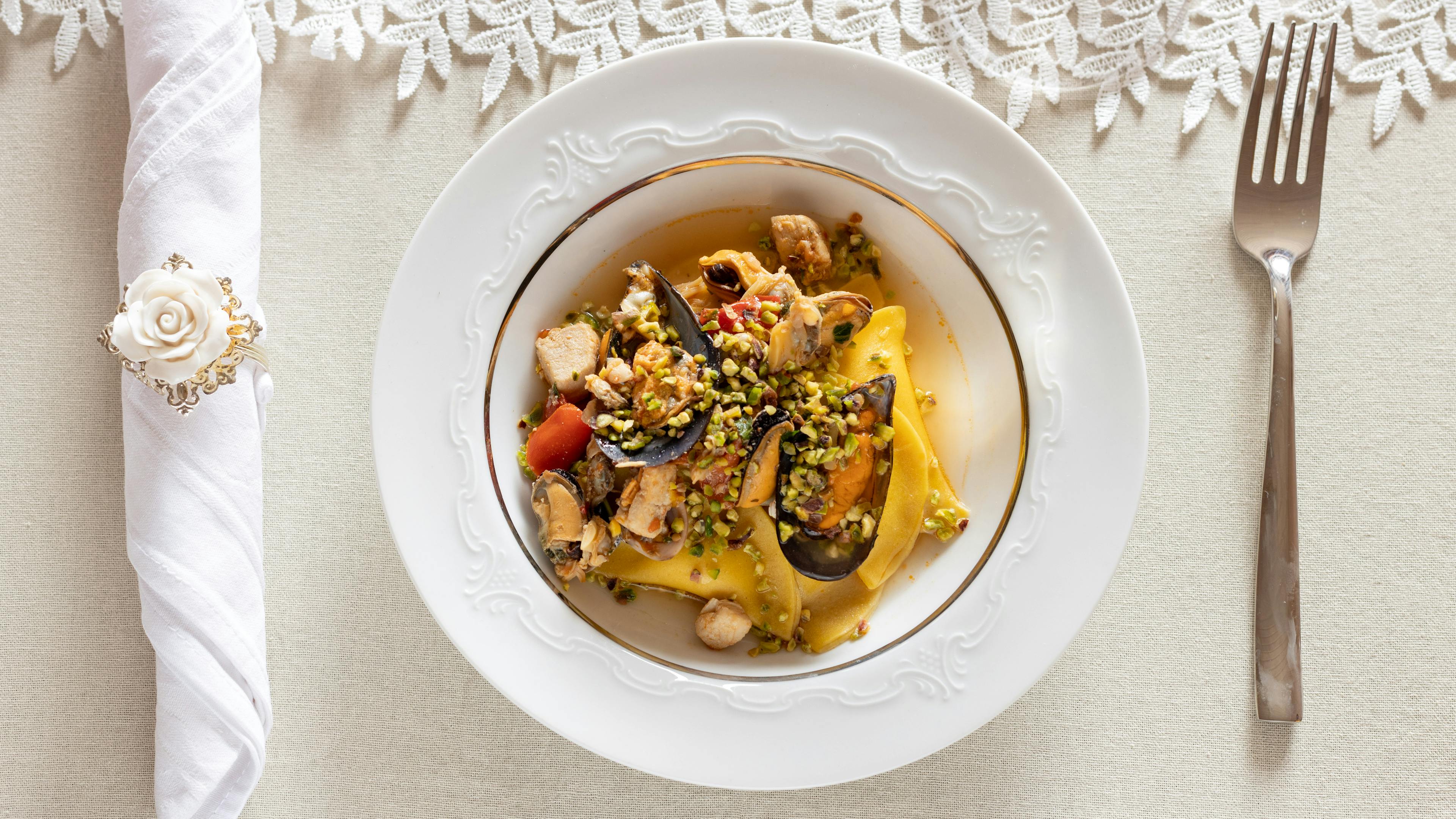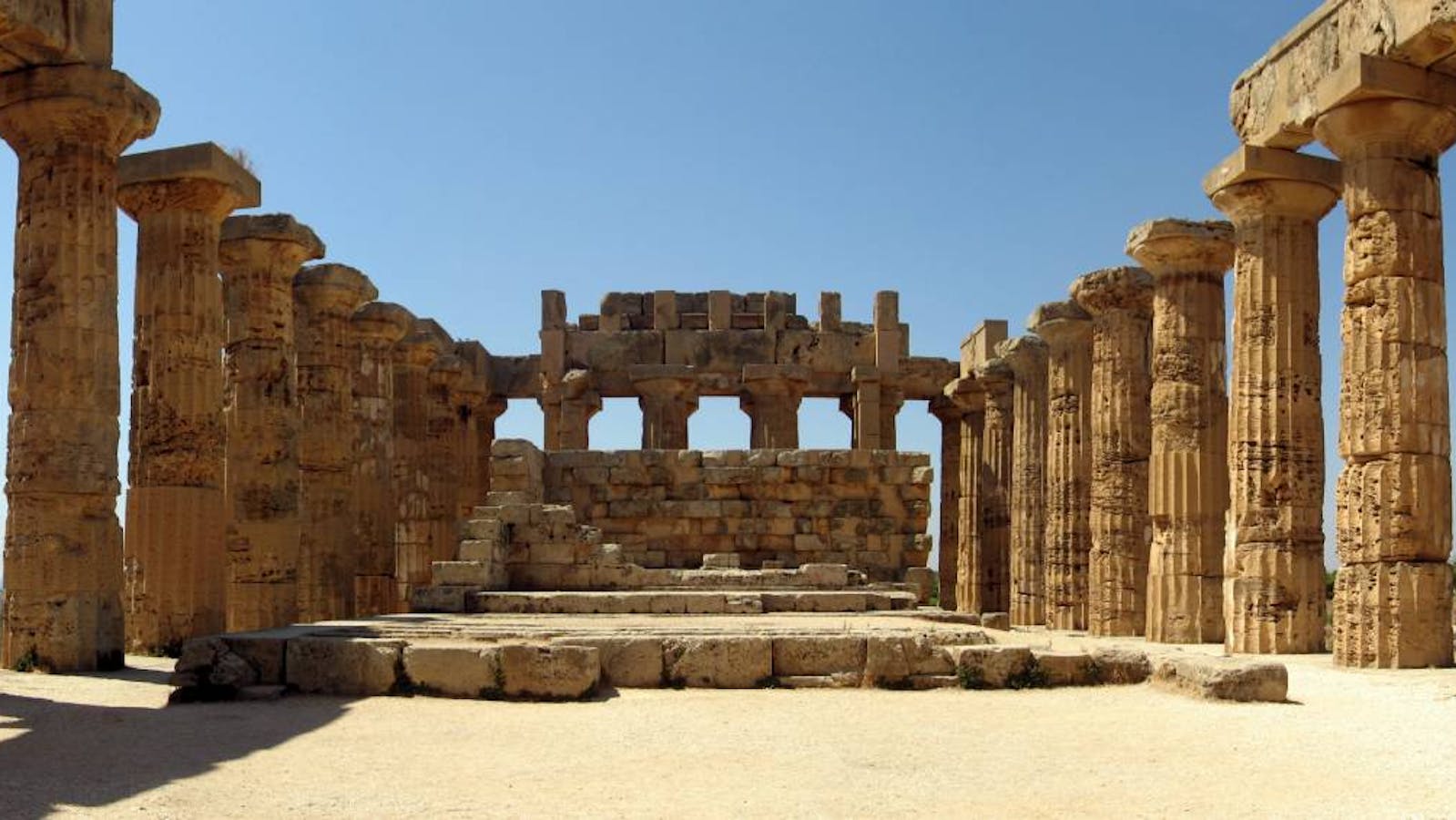

Sfincioni, arancine, panelle, Pasta alla Norma, caponata, cassata: these are just some of the delicacies that make Sicilian cuisine a true gastronomic treasure appreciated worldwide. A varied cuisine with roots dating back to ancient times, shaped by historical and political events that facilitated encounters between populations from all corners of the Mediterranean. Each dish tells a story, and every flavor is a reminder of the cultural exchanges that gave rise to unique combinations of tastes.

The Phoenicians and the Greeks
The origins of Sicilian cuisine are deeply influenced by the Phoenicians and the Greeks, whose traces are still visible in modern preparations. The Phoenicians, who were the first to introduce salting and smoking of food, brought with them a culinary tradition based on barley and spelt, grains that continue to form the basis of many dishes today. The Greeks, who arrived around 735 BC in the area of Naxos, spread the use of olives, which became essential for preparing meat and fish, and transformed winemaking into an art. Not only that, the Greeks modified the use of spelt, which had been used for bread, introducing the idea of using it to make pasta and, later, shortcrust pastry.


The Cesarine in Sicily
Discover the gastronomic experiences offered by the Cesarine in Sicily! Join authentic lunches and dinners, explore local markets, and learn the secrets of Sicilian cuisine through our cooking classes!


Byzantine and Arab Influences on Sicilian Cuisine
No story of Sicilian cuisine would be complete without mentioning the Byzantine and Arab influences. The Byzantine rule, with its love for citrus fruits and spices like cinnamon and cloves, enriched Sicilian pastry, gifting us with those unmistakable scents that now define the island's most traditional desserts. It was under the Arabs that some of Sicily's most iconic sweets, such as cannoli and cassata, were born, and it was they who introduced sorbet, a word derived from the Arabic “sciarbat,” originally made with Etna snow and sweetened with fruit juice.

Cooking classes, tours, and dinners in Sicily
Explore our culinary experiences throughout Sicily, visiting charming cities such as Palermo, Catania, and Syracuse. Immerse yourself in the lively local fish markets and discover the secrets of traditional recipes, from street food and pasta to desserts!

From Jewish Communities to Spanish Rule
The legacy of the Jewish communities that stayed in Sicily during the Roman period has left traces in some dishes still appreciated today, such as pani câ meusa, stigghiole, frittole, and scaccia. The latter, derived from their unleavened bread, is still made with various fillings, preserving a tradition that has endured through the centuries. The Jewish presence in Sicily lasted until the end of the 15th century when, under the reign of Ferdinand and Isabella, the Jews were forced into exile.
However, the domination that has perhaps left the deepest marks on Sicilian cuisine is the Spanish rule, from 1516 to 1713. The Spanish brought with them essential ingredients for Sicilian cuisine, such as tomatoes, peppers, pumpkins, and cocoa. Their influence is evident in dishes like "mpanata" and "frittatine di legumi," which have their counterparts in Spanish empanadas and tortillas. Thanks to them, Sicily saw the introduction of new preparations that enriched the island's gastronomic landscape, skillfully blending tradition and innovation.


Typical Sicilian Recipes
Tasting Sicilian cuisine is like embarking on a journey through time and across cultures. Characterized by simple ingredients but intense flavors, this extraordinarily varied cuisine boasts specialties that reflect its uniqueness and can only be enjoyed here. Discover with us the recipes from our Cesarine to bring home some of the most iconic dishes that have made Sicilian cuisine famous worldwide!
Arancine

One of the most famous Italian street foods: delicious breaded and fried rice balls, perfect for a snack or an irresistible appetizer.
Sicilian Pistachio Cake

The typical cake from Bronte that enhances the flavor of the famous dried fruit.
Sfincione

The traditional Sicilian focaccia, probably invented by the nuns of the San Vito monastery.